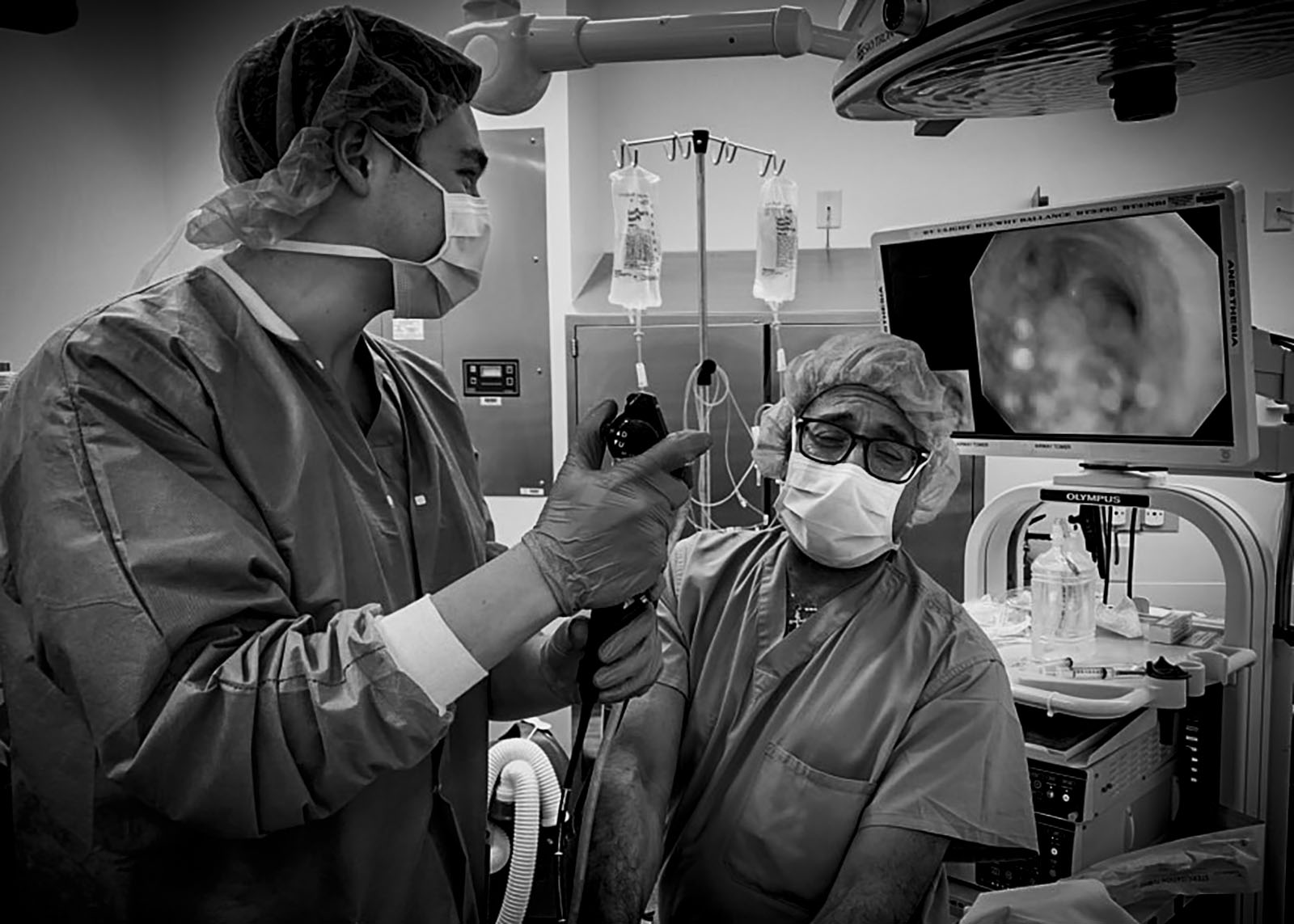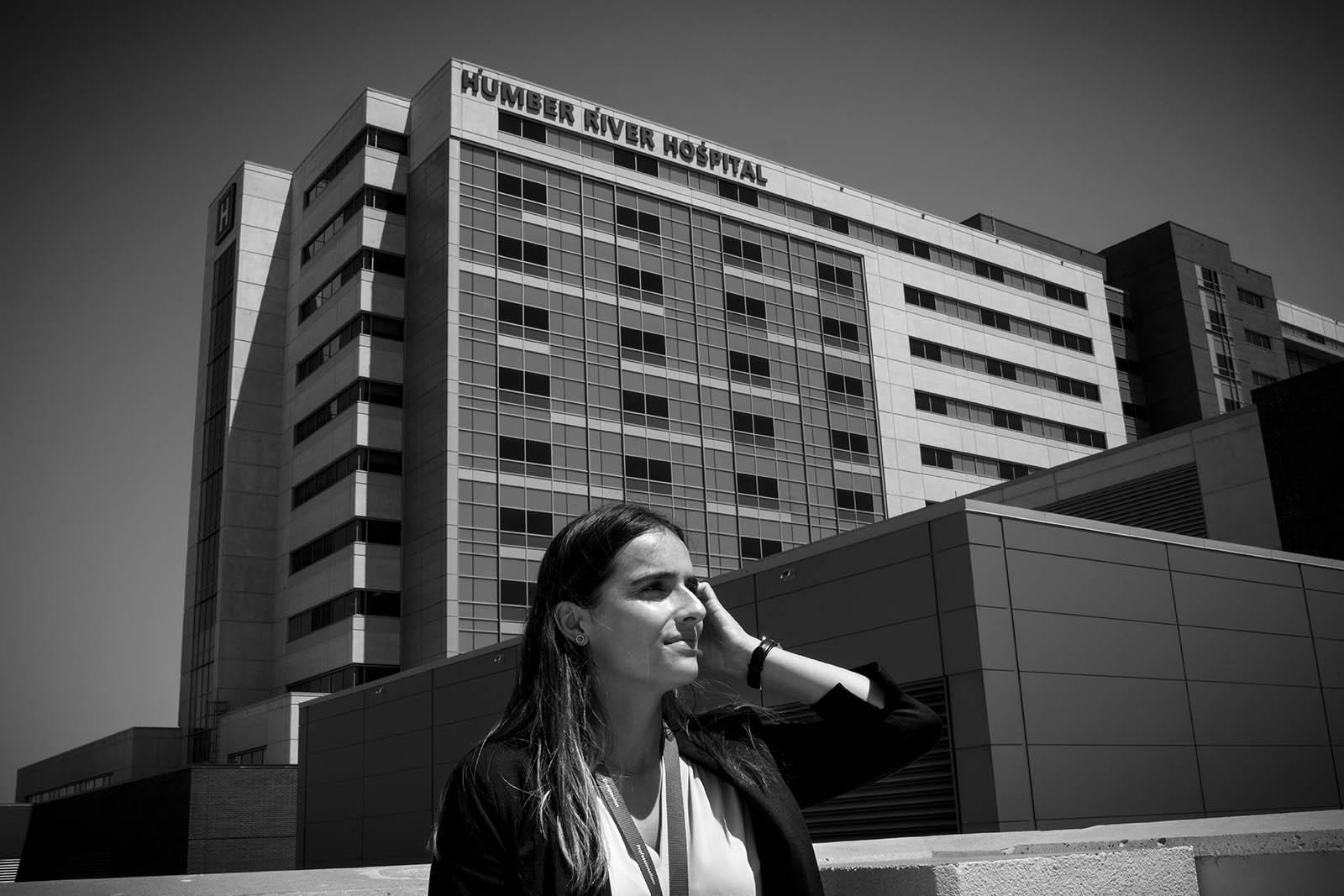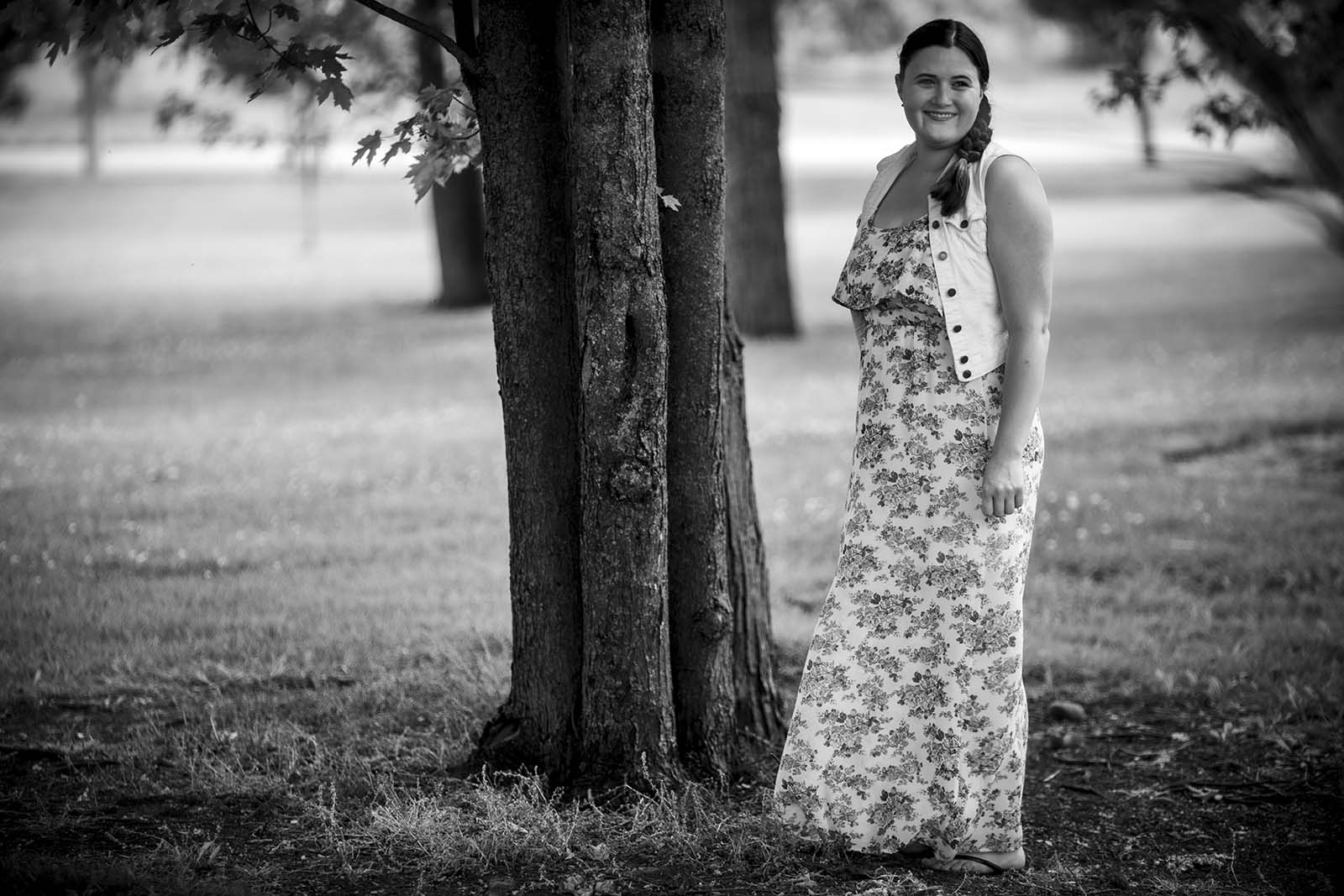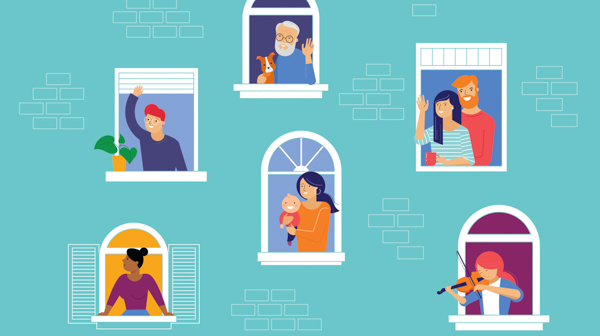- Future Students
- Current Students
- Faculty
- Staff
- Alumni
- Others
A look at the UofGH community's essential workers
Many alumni and students in the University of Guelph-Humber community have been working as essential workers during the COVID-19 pandemic, many on the front lines.
These are a few of their stories.
Aastha Shetty (Media Studies, 2018)

What does a typical work day look like for you since the pandemic began?
I work from home for three days of a week, and work from the studio for two days of the week.
When I work from home, I am working as a news reporter, covering our community's day-to-day stories.When I work from the studio, I am co-anchoring our weekend news show. I need to be in studio for this to operate our broadcasting equipment, which helps me go live. The equipment is too valuable and heavy to transport back and forth to my home.
What has been the most challenging part about life since this began?
Staying physically healthy. I am anxious to go outside to exercise, because I want to make sure I don't get sick, or pass COVID-19. As the province continues to slowly reopen, I am more and more anxious. On the flip side though, I have been cooking at home a lot more, and I am eating quite healthy. This is in contrast to my life as a reporter before the pandemic -- there were countless meals-to-go that weren't always great for me!
How have you taken care of yourself during this time?
I love my garden. It's given me peace, something to love and care for. I have never had so much time and attention to give my garden, and they all seem to really appreciate it. I've got tomatoes, herbs and roses. A small garden but lush and lively.
During this pandemic did you feel supported by your community, province and overall country?
I think the government is doing the best they can to support the community. I worry the most about our small local businesses. I worry about our community all the time -- what about the old-fashioned Pin-Up Arcade Bar in Waterloo? Will the Adventurer's Guild Cafe survive? Are my favourite restaurants like La Cucina in Kitchener getting enough business? I'm constantly worried about how Waterloo Region will look after the pandemic. Across Canada, I have also seen several smaller news companies fold under pressure during the pandemic. We have lost some ad revenue as well. I hope all levels of government have a safety net planned for us.. media, small businesses, and everyone else.
Benjamin Mori (Kinesiology, 2012)

What does a typical work day look like for you since the pandemic began?
My days in the OR involve reviewing the scheduled surgeries and patients the evening before. I get to the hospital around 6 AM to prepare for the day. The first case begins at 7 AM. I can do one or several surgeries in a day; depending on case complexity. I may provide general anesthesia, which involves inducing a state of unconsciousness and often necessitates cardiorespiratory support. I may just provide light sedation or use injections to temporarily numb an extremity being operated on. Outside the OR, I place epidurals in laboring mothers, respond to crises/codes within the hospital, staff the chronic pain clinic and care for patients in the ICU. My calls are 24-hour shifts, where emergency surgeries are performed overnight. On non-call days I typically leave the hospital around 4 PM.
The pandemic forced a change in my workflow. For several weeks, all elective surgeries were held. All face-to-face clinic appointments were canceled, making caring for chronic pain patients difficult. For infection control purposes, every patient with a COVID-19 positive or unknown status has to be treated similar to a nuclear reactor, where cumbersome personal protective equipment has to be worn, vital equipment has to be stored outside the OR for fear of contamination and every surface in close proximity to the patient has be thoroughly disinfected. Simply, standard of care is more difficult to uphold while taking the measures needed to prevent viral spread.
What has been the most challenging part about life since this began?
The most difficult part of this pandemic has been seeing those patients unfortunate enough to succumb to severe infection. We can only escalate supportive care and hope the patient’s body is strong enough to mount an effective immune response before the virus overtakes them – there is no magic bullet. I am consulted to provide sedation and place invasive airways in the very sick in order to initiate ventilator support. This is often the last step in the escalation of care. A point of no return for many. Since there are no hospital visitation rights in a pandemic, I can be the last person the patient sees. Although many of the patients who reach this state have pre-existing medical problems, some do not. Burned in my memory is a 34-year-old father of two who had no such conditions. When I entered his room, he was gasping for air, sweating and panicked. His oxygen level was low and falling. I prepared to sedate and intubate him while he was FaceTiming his tearful wife. I paused while they said goodbye in the commotion of monitor alarms and busy ICU staff. I moved to the head of the bed and, before inducing anesthesia, the patient asked me if he would be okay. It felt inhuman to do anything but reassure him. He thanked me as I administered the anesthetic. The patient remained asleep, progressively decompensated and expired the following day. Sadly, this is the manner in which roughly 9,000 Canadians and 150,000 Americans lost their lives to date. No family at the bedside - isolated and afraid.
How have you taken care of yourself during this time?
I continue to ride a bike two miles to and from work. When the gym was closed, I would run outdoors. My work is mentally stimulating. My wife, colleagues, dog and cat are fantastic sources of emotional support.
During this pandemic did you feel supported by your community, province and overall country?
I feel supported by my community. The outpouring of support for frontline workers has been uplifting. The majority of people recognize the challenges and risks involved in caring for patients during this pandemic. Furthermore, I feel the state and federal governmental bodies have done what they can to support healthcare workers with the resources they had on hand. The recommendation for universal masking and lockdown measures were appropriate. However, I think the United States was ill prepared to effectively manage a viral pandemic at the onset. For profit healthcare systems are lean by design with only small stores of protective gear, few reserve staff and no redundancy of vital equipment needed to manage the very sick; like ventilators. Additionally, there were no systems or supplies in place to allow for adequate testing and robust contact tracing; which are both required to contain the virus. We are still not there yet.
Jessica De Pao (Kinesiology, 2018)

What does a typical work day look like for you since the pandemic began?
Tough question. No day has been the same! Majority of my day revolves around Respirator Fit Testing Hospital Staff to ensure they have a good seal between the respirators face piece and their face in order to perform aerosolized medical generating procedures on all patients including COVID-19 patients. The goal at the end of the testing is for staff to feel comfortable knowing how to appropriately utilize respiratory protection to avoid acquiring an occupational illness.
What has been the most challenging part about life since this began?
Long hours, Fear of bringing COVID-19 home to my family members and Not being able to see friends and family as much. Having a great support system during the current climate is essential to get through the day to day.
How have you taken care of yourself during this time?
FaceTiming friends and family to get that essential continuous support. Throughout this pandemic I have felt like Ive always had someone in my corner, cheering me on and supporting me every step of the way.
During this pandemic did you feel supported by your community, province and overall country?
Absolutely. There was numerous donations made from a variety of organizations to Humber River Hospital. We were given warm meals, clothes, shoes, free grocery delivery. It was really an outpouring of support and that support has been ongoing!
Bree McCoomb (Family and Community Social Services, 2015)

What does a typical work day look like for you since the pandemic began?
My day starts with a team meeting over Zoom where each member of the team discusses their upcoming day and any important case information. From there I usually have 4-5 meetings with participants over Zoom, telephone, or in-person. Before meeting with participants in-person, COVID-19 screening is conducted and strict PPE guidelines are followed, including gloves and a mask. Case noting and documentation is how I generally end my days.
What has been the most challenging part about life since this began?
The most challenging part in my life since this pandemic began was when I had to put down my rabbit of 9 years. I wanted to be in the room with him, however, due to the pandemic I had to stay outside of the veterinary clinic while they put him down.
It has been really difficult being away from my family. I have not been able to be in close proximity to my parents and sister since February 2020. Working in the front lines and around so people, I don’t want to risk my family getting sick. I stay distant out of undying love. Until we can see each other again, Zoom and Houseparty is how we all stay connected.
How have you taken care of yourself during this time?
I have recently taught my dog to run alongside my bike. It has been a blast biking around town with him.
I make sure to stay connected with friends and family. Since the pandemic began, I have reconnected with five different friends I met at GH. One thing being at home has taught me is that Guelph-Humber friends are lifelong friends.
During this pandemic did you feel supported by your community, province and overall country?
This is a really difficult question. I would love to say that I feel supported by the province, however, the pandemic pay offered was not made eligible to myself or any of my co-workers. I am a registered social worker who spends hours a day working face-to-face with many community members, however, was deemed ineligible. I know many people who are facing the same struggle, including people working in the hospitals.
I think Canada has done a good job in the fight against COVID-19. I won’t lie though, I am nervous about entering Stage 3.
I think small communities, like Perth County, have done an excellent job in the fight against COVID-19. The community has not let their small number of cases blind them from protecting residents. Common areas are continuously cleaned, grocery stores are adamant about social distancing, and by the time this article comes out, masks will be mandatory in the county. I am proud to live here.







